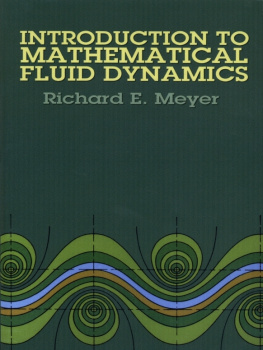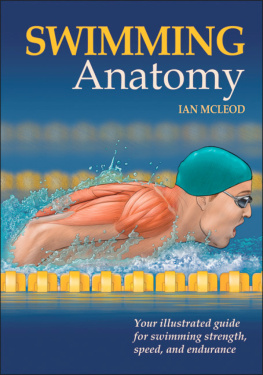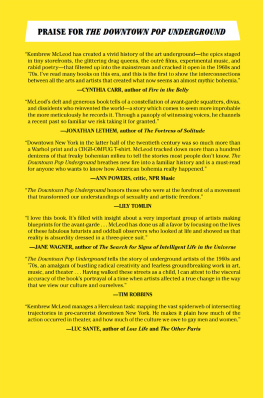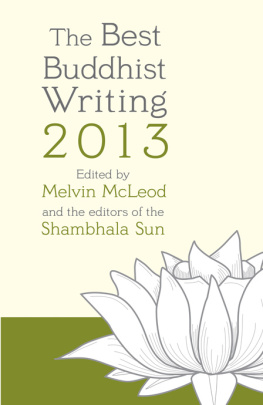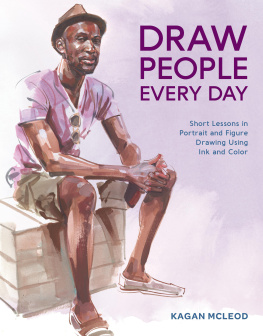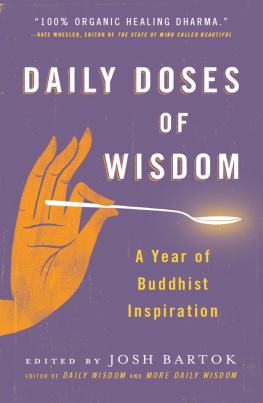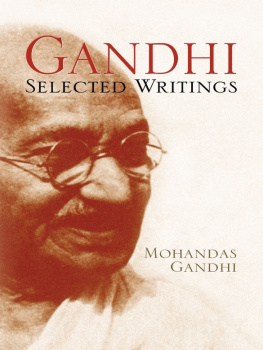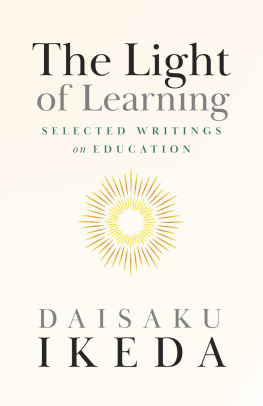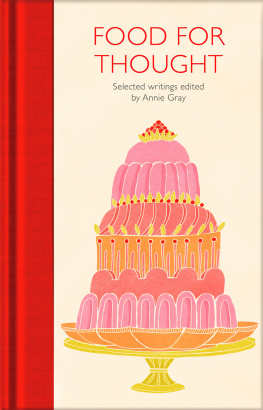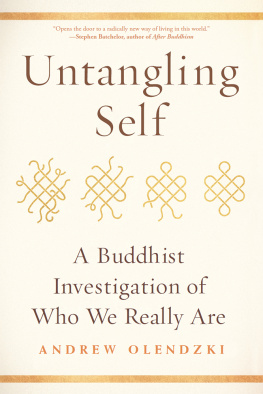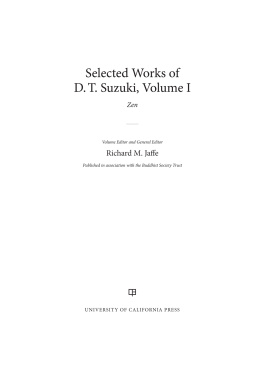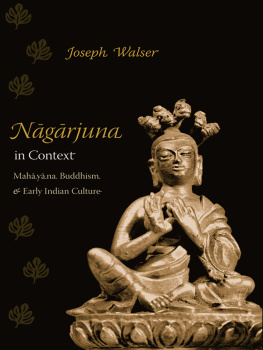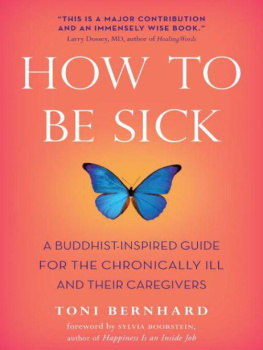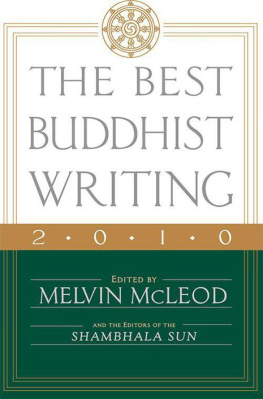McLeod - The best Buddhist writing. 2012
Here you can read online McLeod - The best Buddhist writing. 2012 full text of the book (entire story) in english for free. Download pdf and epub, get meaning, cover and reviews about this ebook. year: 2012, publisher: Shambhala Publications, genre: Religion. Description of the work, (preface) as well as reviews are available. Best literature library LitArk.com created for fans of good reading and offers a wide selection of genres:
Romance novel
Science fiction
Adventure
Detective
Science
History
Home and family
Prose
Art
Politics
Computer
Non-fiction
Religion
Business
Children
Humor
Choose a favorite category and find really read worthwhile books. Enjoy immersion in the world of imagination, feel the emotions of the characters or learn something new for yourself, make an fascinating discovery.
The best Buddhist writing. 2012: summary, description and annotation
We offer to read an annotation, description, summary or preface (depends on what the author of the book "The best Buddhist writing. 2012" wrote himself). If you haven't found the necessary information about the book — write in the comments, we will try to find it.
Abstract: A collection of Buddhist-inspired writings selected by the editor as the best published in 2011
McLeod: author's other books
Who wrote The best Buddhist writing. 2012? Find out the surname, the name of the author of the book and a list of all author's works by series.
The best Buddhist writing. 2012 — read online for free the complete book (whole text) full work
Below is the text of the book, divided by pages. System saving the place of the last page read, allows you to conveniently read the book "The best Buddhist writing. 2012" online for free, without having to search again every time where you left off. Put a bookmark, and you can go to the page where you finished reading at any time.
Font size:
Interval:
Bookmark:
Practical wisdom from Pema Chdrn and Thich Nhat Hanh share space in this anthology with fresh insight on the Occupy Wall Street movement, the art and practice of contemplative photography, the story of five courageous monks who take on the disastrous forces of a wildfire, and other highly personal accounts.
Yoga International
ABOUT THE BOOK
A treasury of the most notable, profound, and thought-provoking Buddhist-inspired writing published in the last year. The Best Buddhist Writing 2012 includes:
- His Holiness the Dalai Lama on cultivating a universal ethic of kindness
- Sharon Salzberg on getting your meditation practice started
- Pema Chdrn on how to smile at fear
- The Venerable Bhikkhu Bodhi on analyzing global problems through the lens of traditional Buddhist teachings
- Bruce Rich on the enlightened model of government of the Buddhist monarch King Ashoka
- Thich Nhat Hanh on fidelity in loving relationships
- Michael A. Stussers determinedand hilariouseffort to speakand tweetno evil
- Norman Fischer on a new and more open understanding of language
- Barry Boyces fascinating survey of the life and teachings of the late Chgyam Trungpa Rinpoche
- Michael Stone and David Loy on the basic questions raised by the Occupy Wall Street movement
- Kenchen Thrangu Rinpoches explanation of the meditation practice of kusulu, the pinnacle of simplicity and relaxation
- Nancy Baker on the powerful and useful energy behind anger
- Diane Ackerman on living with her beloved husbands Alzheimers disease
- Yangzom Brauens moving account of her grandmother and mothers escape from Tibet following the Chinese invasion
- And much more
MELVIN MCLEOD is the editor-in-chief of the Shambhala Sun and Buddhadharma: The Practitioners Quarterly. He is also the author of Mindful Politics: A Buddhist Guide to Making the World a Better Place.
Sign up to learn more about our books and receive special offers from Shambhala Publications.

Or visit us online to sign up at shambhala.com/eshambhala.
THE BEST BUDDHIST WRITING 2012 
Edited by Melvin McLeod
and the Editors of the Shambhala Sun
 | SHAMBHALA Boston & London 2012 |
Shambhala Publications, Inc.
Horticultural Hall
300 Massachusetts Avenue
Boston, Massachusetts 02115
www.shambhala.com
2012 by Melvin McLeod and the editors of the Shambhala Sun
Cover design by Jim Zaccaria
All rights reserved. No part of this book may be reproduced in any form or by any means, electronic or mechanical, including photocopying, recording, or by any information storage and retrieval system, without permission in writing from the publisher.
Library of Congress Cataloging-in-Publication Data
The best Buddhist writing 2012 / edited by Melvin McLeod and the editors of the Shambhala Sun.First Edition.
pages cm
eISBN 978-0-8348-2805-6
ISBN 978-1-61180-011-1 (pbk.: alk. paper)
1. Buddhism. I. McLeod, Melvin. II. Shambhala sun.
BQ4055.B476 2012
294.3dc23
2012012376
Contents
Andrea Miller
Diane Ackerman
John Tarrant
Pema Chdrn
Sharon Salzberg
Shodo Harada
Melissa Myozen Blacker
Colleen Morton Busch
Noah Levine
Joan Sutherland
Thich Nhat Hanh
Callie Bates
Lin Jensen
Nancy Baker
The Dalai Lama
Stephan Talty
Yangzom Brauen
Ven. Bhikkhu Bodhi
Michael Stone and David Loy
Bruce Rich
Zoketsu Norman Fischer
Andy Karr and Michael Wood
Barry Boyce
Khenchen Thrangu Rinpoche
Tenzin Wangyal Rinpoche
Elihu Genmyo Smith
Taigen Dan Leighton
Michael A. Stusser
Since their first encounter with Buddhist philosophy two centuries ago, Western thinkers have wondered at Buddhisms uniqueness and struggled to define it. Is Buddhism a religion, albeit one without God? Is it a philosophy, an ethical system, a psychology, a way of living? This is the conundrum of the great nontheistic religion. We in the West struggle with it to this day.
Buddhisms very mystery and variety allow us to read into it what we want. For many in the West, Buddhism is synonymous with peace, love, and the universal religion of human kindness advocated and exemplified by the Dalai Lama. Some Westerners are drawn to the rigor, depth, and artistic associations of Zen, while those with a more mystical bent may be attracted to the colorful and esoteric Vajrayana tradition, with its elaborate rituals and sophisticated tantric practices. Westerners who like their religion practical and humanistic may be drawn to the early teachings of the Pali canon, from which they can derive a kind of liberal Buddhism marked by ethics, rationality, nonhierarcy, and individualism. Still others see Buddhism as a great science of mind, the ultimate partner to Western psychology and neuroscience, or as a philosophy of interdependence that can guide humanity through its environmental crisis.
There is truth in all these views, yet none strikes at the heart of the question we have been asking ourselves for two hundred years: What is it that makes Buddhism unique among the worlds great religions?
For me, it is the Dalai Lama who has answered this question best. In A Profound Mind (Harmony Books, 2011), His Holiness makes a clear, profound statement that encapsulates Buddhisms unique view of the human condition. The suffering and happiness each of us experiences, His Holiness writes, is a reflection of the distortion or clarity with which we view ourselves and the world.
Buddhism is famed for the four noble truths that lay out its foundational logic. They are: suffering, the cause of suffering, the cessation of suffering, and the path. Surely all religions and philosophies are born of the need to address the unsatisfactoriness of human life. It is Buddhisms analysis of the cause of and solution to suffering that makes it stand alone. This analysis is what the Dalai Lama has summarized in a single, precise sentence.
We experience suffering, he is telling us, because we dont understand. Our view of reality is distorted and inaccurate. We are simply mistaken, not sinful or flawed. We are, in a word, ignorant. We think that we and the world we experience are solid, continuous, and permanent, and we cause ourselves and others unending pain in our futile effort to maintain that illusion. Ignorance is the cause of suffering: this is the second noble truth, Buddhisms unique diagnosis of the human condition.
Therefore, the Dalai Lama continues, we experience happinessthe cessation of sufferingwhen we understand with clarity the true nature of ourselves and our world. No longer attached to realities that are at best momentary, we do not experience fear. We do not generate the three poisons of like, dislike, and indifference. We are not selfish. We are, in a word, wise. Our hearts are open, our minds are clear, and we benefit ourselves and others. Seeing reality clearly is the cause of the cessation of suffering: this is the third noble truth, Buddhisms unique remedy for the human condition.
This brings us to the fourth noble truth, the path, and to this book, the 2012 edition of
Next pageFont size:
Interval:
Bookmark:
Similar books «The best Buddhist writing. 2012»
Look at similar books to The best Buddhist writing. 2012. We have selected literature similar in name and meaning in the hope of providing readers with more options to find new, interesting, not yet read works.
Discussion, reviews of the book The best Buddhist writing. 2012 and just readers' own opinions. Leave your comments, write what you think about the work, its meaning or the main characters. Specify what exactly you liked and what you didn't like, and why you think so.


